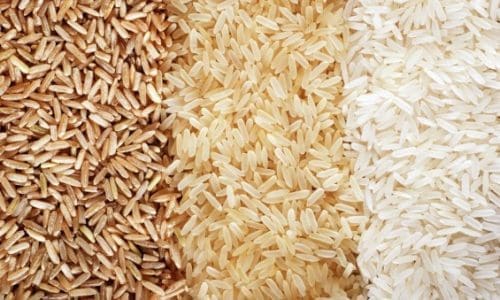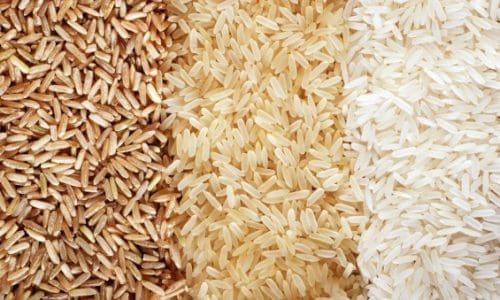
The Chamber of Agribusiness Ghana (CAG) has urged government to implement urgent policy interventions to tackle what it describes as a growing crisis in Ghana’s grains market, where more than 1.2 million metric tonnes of rice, maize, and soya beans reportedly remain unsold in warehouses and on farms across the country.
The Chamber warned that the glut threatens the livelihoods of farmers, aggregators, and processors and could destabilize Ghana’s agricultural value chain if not addressed immediately. The organization declared what it called a national agricultural emergency in a statement signed by Chief Executive Officer Farmer Anthony Kofituo Morrison.
The Chamber is proposing a three-month moratorium on rice imports to enable the local market to absorb the existing surplus. “We urgently call for an immediate three-month ban on rice importation to clear existing local stockpiles and provide relief to farmers and millers,” the statement read.
According to CAG, Ghana’s annual rice consumption stands at about 1.9 million metric tonnes, while local production is estimated at 900,000 metric tonnes. Yet almost two years’ worth of both milled and paddy rice reportedly remain unsold in warehouses and factories nationwide, representing what the Chamber describes as a paradox of surplus amidst deficit.
The organization argued that while Ghana continues to import rice to supplement local consumption, large volumes of locally produced rice remain unsold, largely due to cheaper imports and smuggled, poor-quality rice entering the market through unapproved routes. These distortions have depressed local prices and discouraged investment in domestic rice production.
The Chamber also called for the repeal of the Export and Import (Restriction on Exportation of Soya Beans) Regulations, 2020, known as Legislative Instrument (L.I.) 2432, which restricts the free export of soya beans. According to CAG, the restriction has led to sharp declines in farm gate prices, leaving farmers with unsold stocks and little incentive to continue cultivation.
The policy, introduced to secure local supply for poultry and aquaculture industries, has instead triggered a price collapse, with farm gate prices dropping from 650 cedis to 400 cedis per bag. Thousands of bags of soya beans remain locked up in warehouses across the Northern and Southern regions, discouraging farmers from further cultivation.
“The current policy has made it difficult for farmers to find profitable markets for their produce. Removing this restriction will restore competitiveness and encourage production,” the statement said. Ghana’s soya bean production stands between 225,000 and 250,000 metric tonnes, representing only about a third of the country’s potential capacity of 700,000 metric tonnes, even as domestic demand exceeds 300,000 metric tonnes and continues to rise.
To restore transparency and market order, the Chamber proposed a coordinated national audit of all rice currently on the market. The audit should involve the Ministry of Trade and Industry, Ghana Revenue Authority (GRA), Ghana Standards Authority (GSA), Food and Drugs Authority (FDA), and national security agencies to verify tax compliance and detect smuggled products.
CAG believes such collaboration would strengthen border surveillance, eliminate illegal trade practices, and protect consumers from substandard imports. The Chamber expressed alarm over alleged collusion between smuggling syndicates and corrupt border officials, stressing that the government is losing critical revenue through tax evasion.
Beyond emergency measures, the Chamber urged government to establish a Strategic Grain Reserve Procurement Programme through the National Food Buffer Stock Company (NAFCO). Under the initiative, government would purchase surplus grains directly from farmers to stabilize prices, support smallholders, and ensure a steady grain supply for the poultry, livestock, and food processing industries.
The program would also help Ghana meet its food security commitments under the Economic Community of West African States (ECOWAS) Regional Food Security Storage Strategy. The Chamber also proposed the creation of a National Grain Price Stabilization Fund to guarantee predictable pricing for farmers and grain-based industries.
“We must safeguard the investments of our local farmers and agribusinesses to build a food-secure and economically resilient Ghana,” the Chamber emphasized. The statement added that addressing the grain market distortions would not only protect farmers but also support Ghana’s broader food security and industrialization goals.
Ghana’s maize situation mirrors the rice crisis. The country consumes approximately 3.3 million metric tonnes of maize annually but produces only about 2.5 million metric tonnes, leaving a shortfall of nearly 700,000 metric tonnes. Yet significant volumes remain unsold due to market coordination problems.
Ghana imports an estimated 1.3 million tonnes of rice annually, even though local production has been rising steadily. Stakeholders in the agriculture sector have long called for stronger import controls and targeted incentives for domestic producers to reduce the country’s dependency on foreign rice.
Looking beyond immediate interventions, CAG outlined a long-term framework for sectoral growth. It called for a five-year Ghana Rice Production Strategy led by the Ministry of Food and Agriculture and the Ministry of Trade and Industry, featuring phased import quotas aligned with rising local production capacity.
The Chamber also urged investment in research, irrigation, mechanization, and agro-processing to enhance productivity and competitiveness. Additionally, CAG is advocating for a comprehensive Agriculture for Economic Transformation Policy to harmonize agricultural support initiatives and drive private sector investment in value addition.
Meanwhile, the National Food Buffer Stock Company has begun purchasing key staple foods such as rice, maize and gari from farmers in response to their appeals for market access amid high yields and limited storage capacity. So far, 60,000 bags of rice, 120,000 bags of maize, and 10,000 bags of gari have been purchased as key staple foods targeted for emergency reserves.
The Chamber’s latest proposal adds to growing calls for a more balanced trade policy that protects local farmers while ensuring consumer affordability. “Decisive action on these recommendations will not only resolve the current grain glut but reposition Ghana’s grains sector as a driver of sustainable growth and national resilience,” the Chamber stated.
